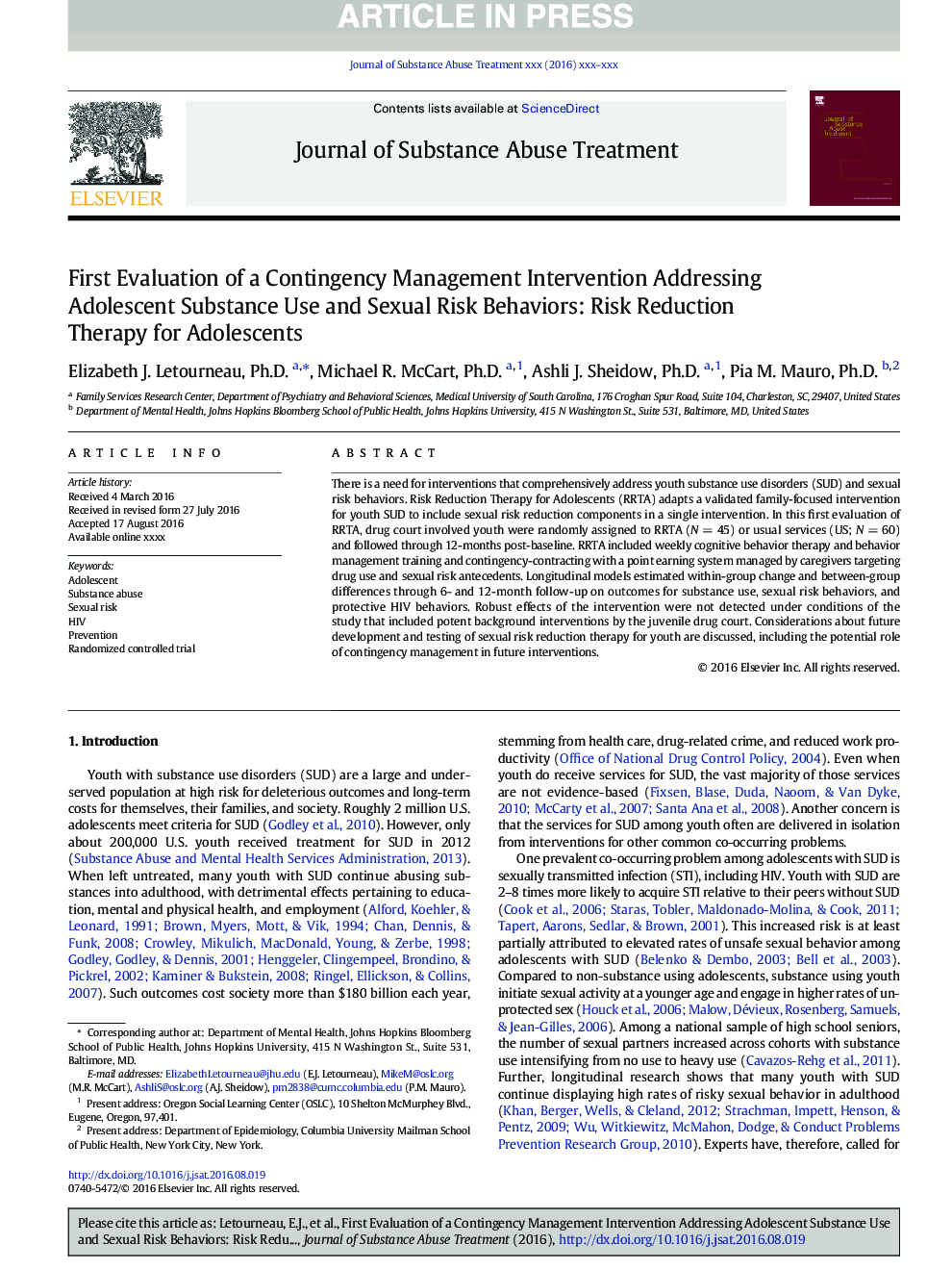| Article ID | Journal | Published Year | Pages | File Type |
|---|---|---|---|---|
| 4932411 | Journal of Substance Abuse Treatment | 2017 | 10 Pages |
Abstract
There is a need for interventions that comprehensively address youth substance use disorders (SUD) and sexual risk behaviors. Risk Reduction Therapy for Adolescents (RRTA) adapts a validated family-focused intervention for youth SUD to include sexual risk reduction components in a single intervention. In this first evaluation of RRTA, drug court involved youth were randomly assigned to RRTA (NÂ =Â 45) or usual services (US; NÂ =Â 60) and followed through 12-months post-baseline. RRTA included weekly cognitive behavior therapy and behavior management training and contingency-contracting with a point earning system managed by caregivers targeting drug use and sexual risk antecedents. Longitudinal models estimated within-group change and between-group differences through 6- and 12-month follow-up on outcomes for substance use, sexual risk behaviors, and protective HIV behaviors. Robust effects of the intervention were not detected under conditions of the study that included potent background interventions by the juvenile drug court. Considerations about future development and testing of sexual risk reduction therapy for youth are discussed, including the potential role of contingency management in future interventions.
Related Topics
Life Sciences
Neuroscience
Biological Psychiatry
Authors
Elizabeth J. Ph.D., Michael R. Ph.D., Ashli J. Ph.D., Pia M. Ph.D.,
